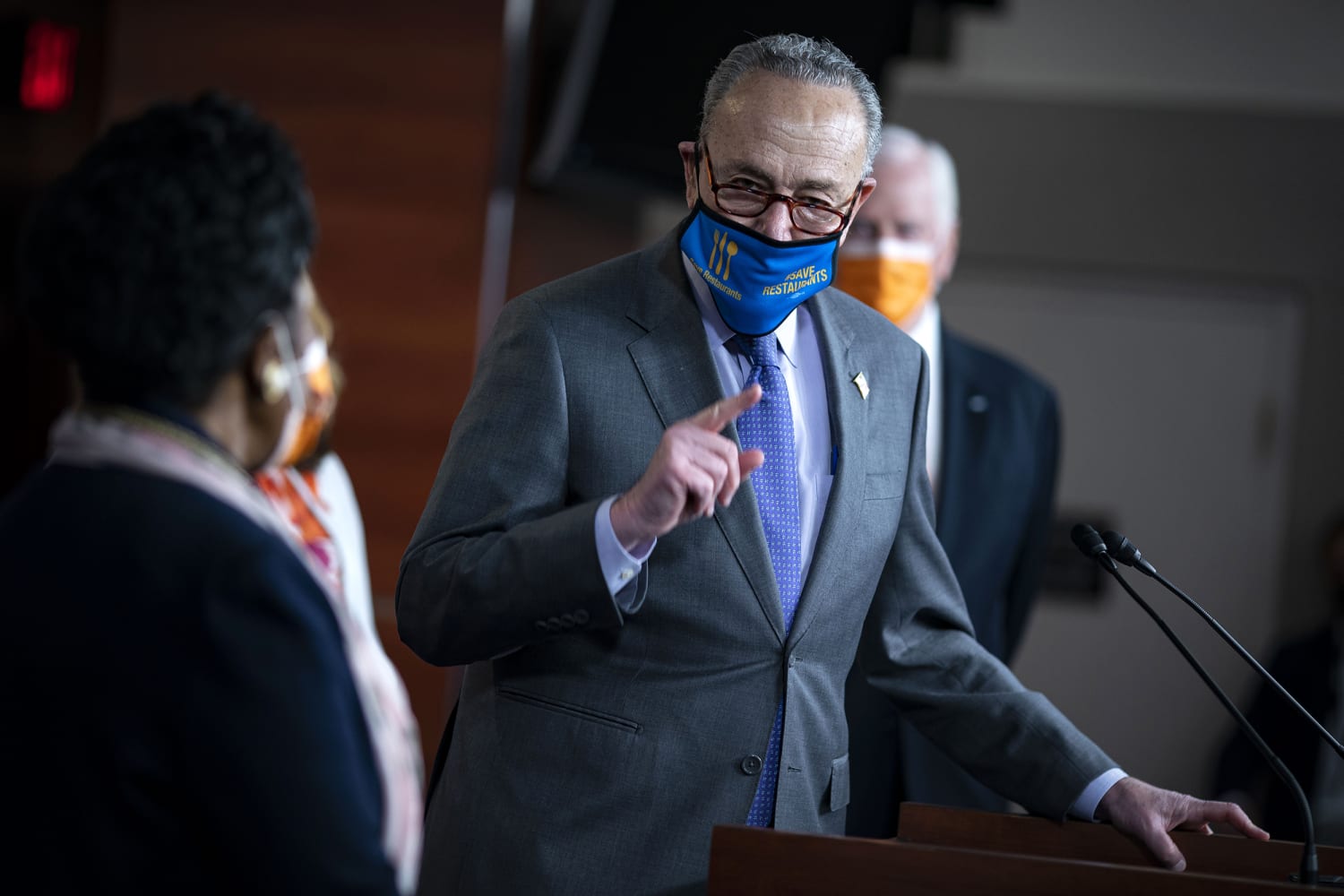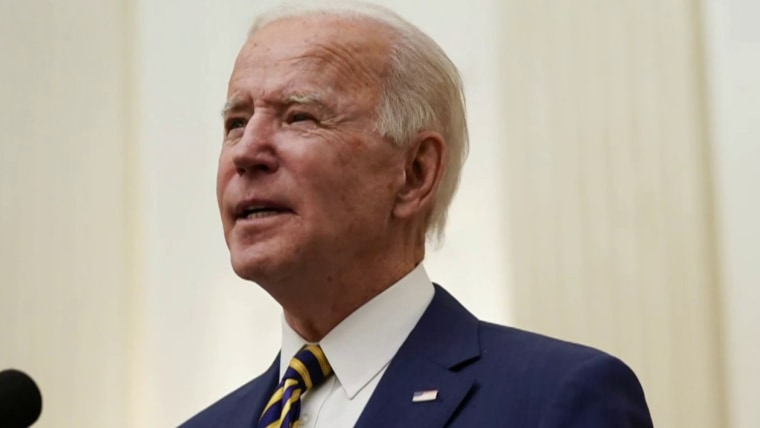WASHINGTON — In a race against the clock, Democratic leaders in Congress are working frenetically to craft a multitrillion-dollar bill to expand the social safety net with plans to hit the gas and start moving it through the House this week.
The House Ways and Means Committee released hundreds of pages of legislative text Tuesday and announced hearings on Thursday and Friday. The bill would include 12 weeks of paid family and medical leave for all workers; expanded Medicare benefits to add dental, hearing and vision coverage; and new investments to bolster nursing homes and long-term care, among other provisions.
Behind the scenes, Democratic leaders are engaging in a flurry of negotiations with lawmakers and committees in both chambers to write policies that can unify the party, with the White House swooping in at times to resolve disagreements, two sources familiar with the emerging bill said.
“We’re at a place where the rubber is hitting the road in terms of shaping the policy and fine-tuning everything and really racing toward those deadlines,” said a senior Democratic aide, adding that the Senate hopes to vote on the bill by Sept. 27. “We’re obviously setting an ambitious timeline, but we’re moving forward to meet it.”
The aide said Democrats can move rapidly because many of the policies had been developed over years before they became part of President Joe Biden’s 2020 campaign platform, giving the party a foundation to work from when it took power in January.
In a memo to congressional offices Tuesday, White House communications director Kate Bedingfield said Republicans who oppose Biden’s “Build Back Better” agenda are fighting to protect the rich, describing the goal of the plan as “leveling the playing field to ensure the wealthiest and corporations pay their fair share and working families get a fighting chance to succeed and prosper in this country.”
Facing unanimous Republican opposition and narrow majorities, Democrats have no votes to spare in the Senate and just three to lose in the House. And they’re trying to develop a product that can pass both chambers without having to go back and forth, in part to satisfy centrist lawmakers.
Medicare expansion and ACA booster
A second Democratic aide said the Ways and Means proposals have general party consensus but stopped short of guaranteeing “100 percent agreement” at this stage. Some of the details in the committee bill will most likely need to be changed to win enough support to become law.
The Sept. 27 target is partly because the House hopes to pass the Senate-approved infrastructure bill by then, and some progressive Democrats say they’ll vote it down if the budget bill isn’t ready.
Democrats have established a maximum price tag of $3.5 trillion, which means making difficult choices on a host of issues. For instance, one group, led by Senate Budget Committee Chair Bernie Sanders, I-Vt., wants to focus on putting more Americans in Medicare, while another group, led by House Speaker Nancy Pelosi, D-Calif., wants to bolster the Affordable Care Act, or ACA, the health insurance program known as Obamacare.
The result is likely to be a compromise in which ACA subsidy boosters that were passed as part of the American Rescue Plan are extended while Medicare benefits are expanded for current seniors. But the Medicare eligibility age of 65 is unlikely to be lowered, said three sources familiar with the emerging package.
Democrats want to create a mechanism to close the Medicaid coverage gap in conservative states that haven’t expanded the program.
And they hope to find savings through prescription drug policies like allowing Medicare to negotiate drug prices and possibly capping out-of-pocket costs for medication. But the party hasn’t settled on a final policy, two sources said.
A centerpiece of the package would be an extension of the monthly child cash allowance for families with qualifying incomes — $300 per child under 6 and $250 per child 6 to 17 years old.
The policy, which passed for one year under the American Rescue Plan, is widely popular. But it’s also expensive. And although party leaders want a long-term extension, the length is “up in the air,” a Democratic aide said.
$3.5 trillion too steep for some
That’s by design, because the bill’s final price tag is subject to negotiation, and it could come down.
Sens. Joe Manchin, D-W.Va., and Kyrsten Sinema, D-Ariz., have said $3.5 trillion is too much. Depending on what the final number is, policy writers can find ways to lower the official cost by setting the expiration dates earlier for programs like cash-for-kids or ACA subsidies, two aides said.
Sen. Tammy Duckworth, D-Ill., told reporters Tuesday that she believes all 50 Democratic-voting members, including Manchin, will ultimately come together.
“I don’t have real concerns. I think Joe is doing what Joe needs to do for himself, for his state, and you’re going to see other senators probably do some of this, as well,” she said. “I think at the end of the day there’ll be 50 votes. But I think we’re going to go through a very healthy, loud family discussion about it.”
Democrats will have to juggle the budget measure with several other must-pass bills in what is shaping up to be a jampacked month. They face a Sept. 30 cliff to fund the government and renew flood insurance, as well as a fall deadline to raise the debt ceiling.
Other provisions in the budget, such as funding for pandemic preparedness, remain unsettled and have been subject to negotiations between Democrats and the White House.
The Ways and Means Committee could consider tax legislation to pay for the package as early as next week, which will be contentious, facing internal disagreements and a blitz of lobbying on behalf of upper earners and corporations who stand to lose.
On Tuesday, Biden, who appeared with Senate Majority Leader Chuck Schumer, D-N.Y., in Queens, New York, to survey the damage from Hurricane Ida, emphasized the climate change investments.
“The threat is here,” Biden said. “We can stop it from getting worse.
“And when I talk about building back better — and Chuck is fighting for my program, our program, on the Hill,” he said, adding that climate change is now “code red — the nation and the world are in peril.”
Source: | This article originally belongs to Nbcnews.com










